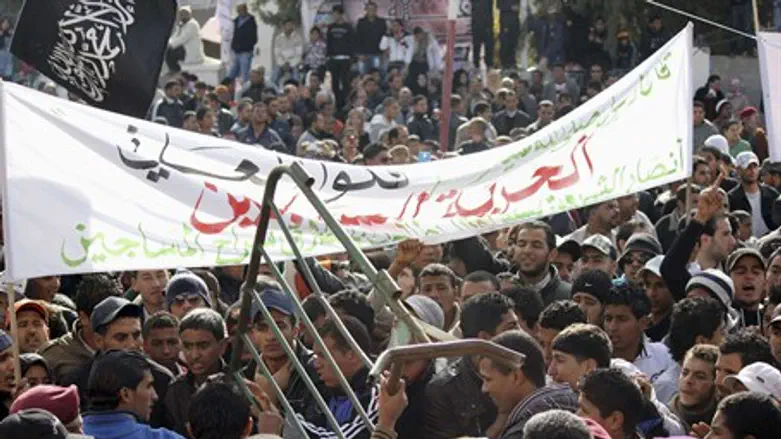
A trip to Israel in 2006 forced Tunisia’s new Tourism Minister to resign just hours after she was sworn in, Al Arabiya reported Thursday, citing Tunisia’s state news agency TAP.
According to the report, Amel Karboul submitted her resignation to Prime Minister Mehdi Jomaa after the trip was brought up during a parliamentary session to give a vote of confidence to Jomaa’s new cabinet, stirring up controversy among parliament members.
“I presented my resignation to Prime Minister Mehdi Jomaa. It is up to him to accept or reject it,” Karboul was quoted as having said at the end of the swearing-in ceremony in the Carthage palace.
Several blocs within the legislative body condemned Karboul and demanded reasons for the trip and her relationship with the Jewish country.
Karboul denied having entered Israel, explaining, “I did not visit Israel because of the pressure I had undergone for more than four hours in the border post, because I am Arab and Muslim.”
The prime minister said, however, that Karboul had indeed visited Israel in 2006 to take part in a UN training program for Palestinian Arab youths.
He added that she refused to continue the training because of the six-hour interrogation she had faced at the Ben Gurion Airport “for being Arab and Muslim.”
Jomaa showed support for Karboul and has rejected her resignation, government sources cited by Al Arabiya said.
Karboul had expressed her commitment to serve Tunisia, noting that despite several difficulties, the country still offers opportunities of development, TAP reported.
If she stays in her post, Karboul will seek to revive one of the most hard-hit economic sectors since the country’s 2011 revolution which led to the ouster of former president Zine El Abidine Ben Ali.
Tunisia relies on tourism for almost seven percent of its gross domestic product and has seen a significant drop in tourists since the revolution which started the Arab Spring protests.
Jomaa, Tunisia’s former Industry Minister, was recently chosen to head a government of independent figures aimed at pulling the country out of a months-long crisis.
His cabinet replaces the one established by the moderate Islamist Ennahda party, which won the country's first free and competitive elections but failed to bring quiet to the country.
Ennahada had rejected outright any normalization of diplomatic ties with Israel.
